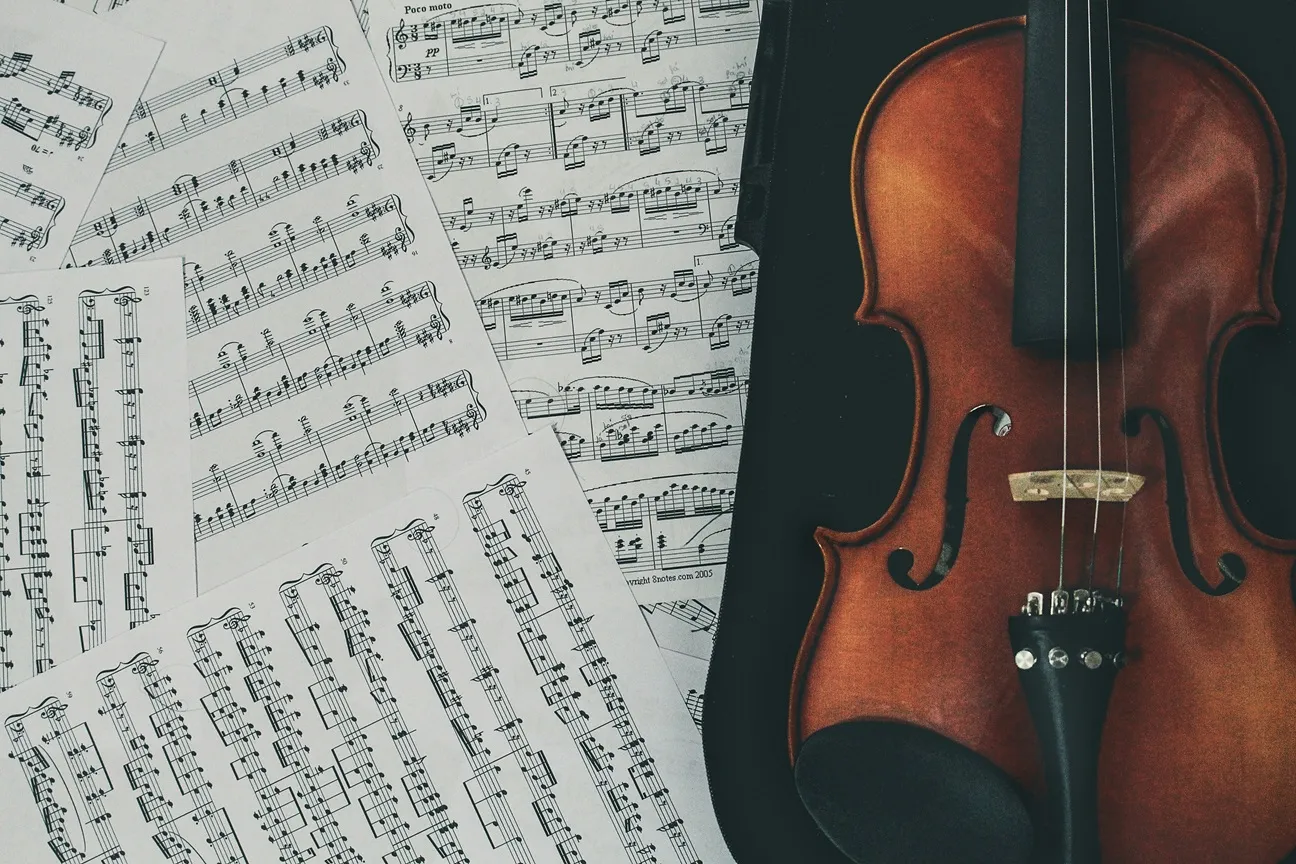August 28, 2024
The Music of Mathematics and the Mathematics of Music
The Intersection of Music and Mathematics: Exploring the Connection Between Sound and Numbers
Exploring the fascinating correlation between music and mathematics, a 20-year musician uncovers a deep connection that goes beyond mere abstraction. Discover the intriguing link between these two seemingly disparate fields in The Music of Mathematics and the Mathematics of Music.
A valued client and friend once posed an intriguing question to me: "What do you think about the correlation between music and mathematics?"
Having been a musician for over 20 years, I initially found this idea abstract. The thought of music and mathematics being interconnected seemed almost paradoxical. However, as I delved deeper into the topic, I discovered that the relationship between these two fields is not only real but also deeply fascinating.
Photo by Stefany Andrade on Unsplash
A valued client and friend once posed an intriguing question to me: "What do you think about the correlation between music and mathematics?"
Having been a musician for over 20 years, I initially found this idea abstract. The thought of music and mathematics being interconnected seemed almost paradoxical. However, as I delved deeper into the topic, I discovered that the relationship between these two fields is not only real but also deeply fascinating.
Mathematics: The Universal Language
It could be argued that mathematics is woven into the fabric of everything in life, from the tangible to the imagined. Any situation involving space, time, or similar factors inherently involves mathematical principles. If that’s the case, then music—often considered a universal language—can indeed marry mathematics.
To many, including myself, music is a non-verbal form of communication, a pure expression of the soul. In my personal definition, music integrates rhythm, harmony, and melody into an organized structure. But universally, music is defined as any sound that someone enjoys listening to.
As an electone player trained in improvisation and arrangement, I've learned that these three elements—rhythm, harmony, and melody—must be meticulously organized to bring a piece of music to life and touch the hearts of listeners. A messy, disorganized composition might fail to evoke the desired emotions. Even abstract music, often seen as a form of improvisation, typically follows some structure, such as chord progressions or sections like verses and choruses.
The Mathematics in Music
Mathematics weaves itself into music in its simplest forms. For instance, chord progressions are often denoted in Roman numerals. In a typical piece, three main chords are frequently used: Chord I, Chord IV, and Chord V7. When transposing songs, musicians count the number of steps or semitones to change the key, applying simple math to create their own versions of a piece. Concepts like chromatic scales and harmonizing melody with harmony are other examples where math plays a role in music. Without mathematics, the diverse genres of music we enjoy today might never have evolved.
Interestingly, we can also view this relationship in reverse. Studies in neurobiology suggest that music might enhance mathematics skills. Music stimulates specific areas of the brain associated with spatial-temporal reasoning, which is crucial for mathematical thinking. You might be familiar with the Mozart effect, a phenomenon where listening to Mozart's compositions—known for their sequential structure—temporarily enhances spatial-temporal reasoning.
Some research indicates that certain music pieces generate alpha/beta waves, which can improve focus, particularly on mathematical tasks. I experimented with this during my university days, and it seemed to help. However, whether music is a "magical potion" that boosts everyone's math abilities remains an open question, as the topic is highly subjective and lacks concrete evidence.
A Harmonious Relationship
In conclusion, mathematics and music are more intertwined than we might initially think. Simple mathematical concepts are applied in musical contexts, and music, in turn, may contribute to better mathematical learning in a scientific context.
Winifred Tan (Wini)
B.Sc (First Class Honours)
ChFC (Singapore) | AEPP | IBF Advanced Level 2CFA (Singapore) - L1 | CIPM (Int’l) Level 1
Court of the Table | Int’l Dragon Awards (Bronze) | APAC Financial Services Star Award
Top 20 GE Executive Financial Consultants | Entre-Planner


